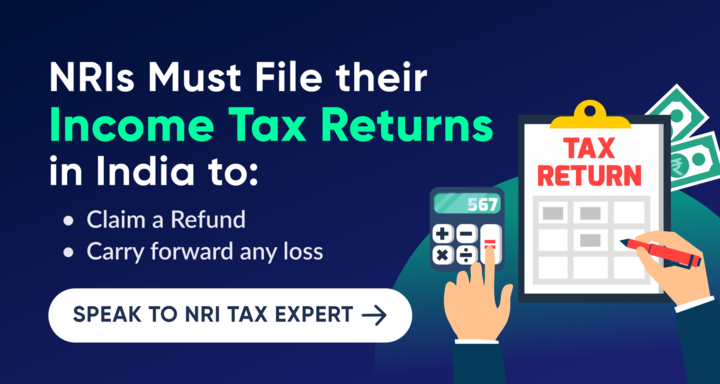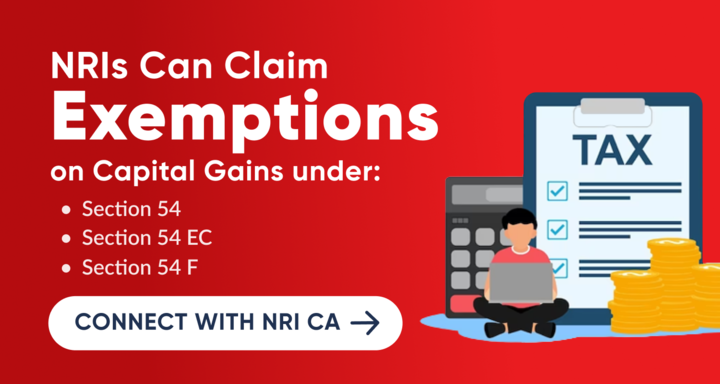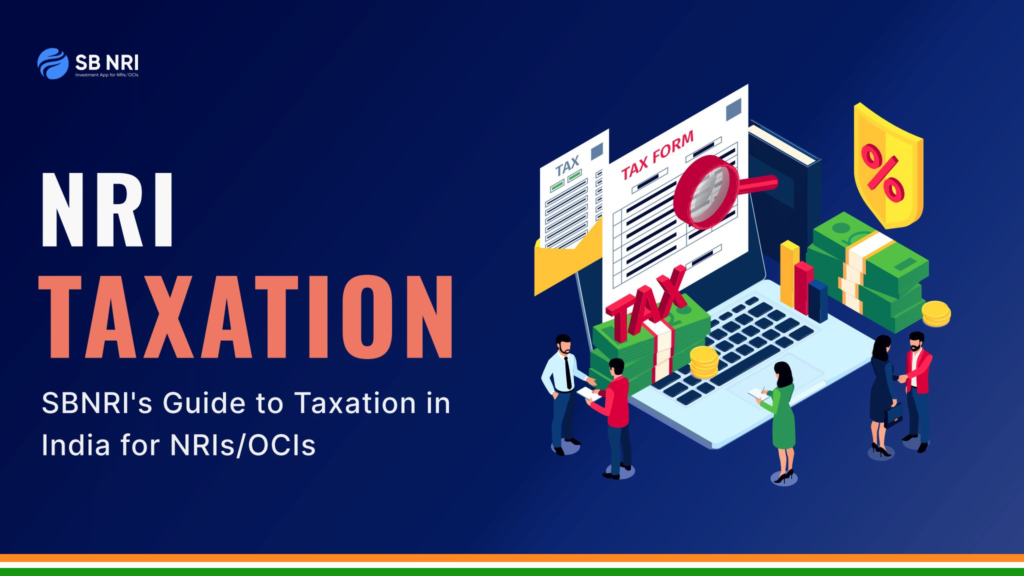Non-Resident Indians (NRIs) who have taxable income in India need to file their Income Tax Return (ITR) in India. Filing taxes on time is a legal obligation that ensures compliance with the income tax laws of the country. However, due to various reasons, NRIs may sometimes miss the deadline. In this blog, we will explore the potential implications and consequences if NRIs miss ITR filing deadline.

What is the ITR Filing Deadline?
The ITR filing deadline for NRIs for the financial year 2022-23 (assessment year 2023-24) is July 31, 2023. NRIs need to submit your income tax return before the designated date. However, for NRIs who miss this deadline, we have covered the consequences of not filing an ITR for NRIs and available options for taxpayers who wish to file their ITR after the deadline.
Consequences if NRIs miss ITR Filing Deadline
In case NRIs are unable to meet the deadline for filing your ITR for the assessment year 2023-24, they have the option to file a belated ITR. The deadline for filing belated ITR is December 31, 2023, unless there is an extension granted by the government. However, if the ITR is submitted after the original due date of July 31 and on or before December 31, 2023, a late filing fee will be imposed.
What is the Late Filing Fee?
- Starting from the financial year 2017-18, the late filing of income tax returns (ITR) attracts a penalty as per Section 234F.
- For example, if the deadline for filing the ITR for the financial year 2022-23 is July 31, 2023, and you fail to submit it by the due date, you can file a belated return by December 31, 2023. However, you will be required to pay a penalty for the delay.
- If you file your ITR after the deadline of July 31, 2023, but before December 31, 2023, the maximum penalty imposed will be Rs 5,000.
- However, there is a provision for small taxpayers as a relief measure. If their total income does not exceed Rs 5 lakh, the maximum penalty for late filing will be limited to Rs 1,000.

To Summarize Section 234F
Given below is the late filing fee details under Section 234F in the table format:
| Filing Date for NRIs | Total Income below Rs. 5 lakh | Total Income above Rs. 5 lakh |
|---|---|---|
| Up to 31 July 2023 | Rs. 0 | Rs. 0 |
| Between 1 August 2023 and 31 December 2023 | Rs. 1,000 | Rs. 5,000 |
What is a Belated Return?
When an NRI fails to file his or her income tax return within the specified timeframe stated in the income tax act and instead submits it after the due date, it is referred to as a belated return. The deadline for filing a belated return is three months before the end of the relevant assessment year, which is typically on or before 31st December.
Let us understand this with the help of an example:
In the financial year 2021-2022, Raghav earned a taxable income of Rs. 8,00,000 from his salary. Although the due date for filing his return was 31st July 2022, Raghav filed his return on 5th September 2022. Since he filed it after the due date, his return is considered as a belated return. Raghav has the opportunity to file his belated return anytime until 31st December 2022.

How to File a Belated Return for NRIs?
Here are the steps to file a belated return for non-resident Indians (NRIs):
Determine your Residential Status
The initial step in filing an income tax return for NRIs is to determine their tax residency status as per Section 6 of the Income Tax Act, 1961. NRIs are individuals who either spend less than 182 days in India during a financial year or spend less than 60 days in India during the previous year and less than 365 days in the four preceding years.
Reconciliation of Income and Taxes with Form 26AS
To benefit from tax treaties and claim refunds for TDS (Tax Deducted at Source) deducted from their income, NRIs need to report TDS credits and advance tax payments in Form 26AS.
Calculate your Taxable Income
NRIs are liable to pay taxes in India on various types of income, such as interest earned on NRO (Non-Residential Ordinary) accounts, capital gains or dividends from Indian shares, and rental income from property. They can also apply for eligible deductions under Section 80C to reduce their taxable income.
Determine Tax Liability
Tax liability for NRIs is calculated based on the applicable NRI income tax slab rates. There is a basic exemption limit of Rs 2.5 lakh applicable to all NRIs before considering deductions or exemptions.
Claim DTAA Benefit
Under the Double Tax Avoidance Agreement (DTAA), NRIs can avoid being taxed twice on the same income. The DTAA allows income to be exempt from tax deduction in one country or taxed at a reduced rate in the home country.
Choosing the Right ITR Form
NRIs are supposed to file returns in Form ITR-2 in all cases, except for business income. NRIs with business income are supposed to file returns in Form ITR-3. Form ITR-1 is not available for NRIs. For filing the belated returns, NRIs need to select “Return filed under section 139(4)” from the drop-down menu in the relevant box of the applicable ITR form.
Verify IT Returns
After filing the income tax return form, it is important to verify the return within 30 days. NRIs can easily e-verify their IT returns from abroad using net banking, which does not require an OTP (One-Time Password).
Note- it is important to note that when filing a belated return for the financial year 2022-23 (assessment year 2023-24), you should only use the ITR forms specified for FY 2022-23 and not those for any preceding or subsequent financial years.

Calculate your TDS Refund with SBNRI’s TDS Refund Calculator
A TDS refund is the process of reclaiming the excess tax deducted at source by the payer if the actual tax liability of the taxpayer is lower than the TDS deducted. This situation typically arises when the income tax calculated on the total income is less than the TDS already deducted. To claim a TDS refund, taxpayers need to file an income tax return (ITR). The Income Tax Department processes the ITR and verifies the details. If the tax department finds that the TDS paid is more than the actual tax liability, the excess amount is refunded to the taxpayer.
You can easily find out how much tax refund you can get by calculating your TDS Refund from this TDS Refund Calculator.
Access SBNRI’s Exclusive NRI Taxation Guide

NRIs and OCIs can now access SBNRI’s exclusive NRI Taxation Guide covering in-depth information about DTAA, Gift Tax, Rental Income Tax, ITR Filing, Types of ITR Forms for NRIs, Capital Gain Tax, Income Tax, and more. The report will help you understand India taxation on mutual funds, other asset classes and how you can comply with the regulations.
Access NRI Taxation report here
Contact SBNRI
Due to a complicated tax system, understanding tax laws can be confusing and NRIs may miss claiming deductions and other benefits or miss filing ITR on time. At SBNRI, we have tax experts to resolve any queries that NRIs may have related to NRI income tax. You can download SBNRI App to connect with our NRI Income Tax Experts and get end-to-end assistance related to NRI tax filing. SBNRI will also help you get a lower TDS Certificate.
You can also click on the button below to ask any questions. Visit our blog and YouTube Channel for more details.



